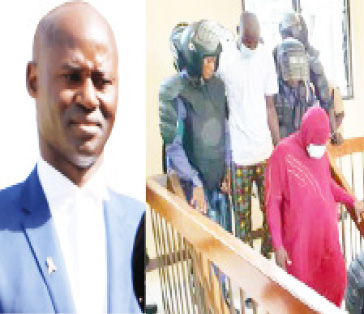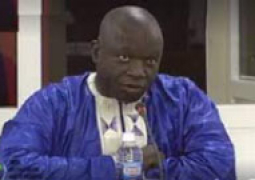
Justice Jaiteh was speaking yesterday as the State filed a motion on notice in the High Court seeking to stay the execution of a ruling delivered on June 10th, 2025, by Justice Jaiteh in the case of State vs Ousainou Bojang and Amie Bojang.
During the last court hearing, Counsel J. Darboe subpoenaed three senior government officials: Ebrima G. Sankareh (government spokesperson), Babucarr Jeng (security adviser), and Momodou Sowe (deputy inspector general of police) to appear in court and testify regarding the comments they made to the public.
The state’s appeal also requested an order directing the court registry to expedite the transmission of records to the Court of Appeal, where the State has filed an appeal.
The motion, filed on June 16, 2025, invokes the inherent jurisdiction of the High Court. According to an affidavit in support of the motion, deposed by Fatou Waggeh, a clerk at the Attorney General's Chambers, the High Court issued a ruling on June 10, 2025, in favour of Ousainou Bojang and Co. (respondents).
The state, dissatisfied with the ruling, filed an appeal at the Court of Appeal of The Gambia on June 12, 2025.
The defence counsel for both accused, Ousainou and Amie Bojang, will respond to the application for a stay of the execution filed by the Director of Public Prosecution (DPP). Then the presiding Judge Justice Jaiteh will deliver a ruling on whether to grant the application sought by the state.
Addressing the DPP, Justice Jaiteh said: “DPP, why did you file your application this morning? This is not efficient. You filed it in the morning and expect us to hear it today. You should have filed it in advance, no later than Friday, and also served the defence so that they could respond and we could proceed. Instead, you come in and informed them that you filed an application. What is happening? Should I even consider this application at all? These are not good practices,” he postulated.
“We are wasting a lot of time in this matter, and time is of essence. So we will come back today and I will give you five or 10 minutes to reply to the motion. When you are done, I am going to make a ruling.”
The business of the court is to proceed, not to entertain last-minute applications. You very well know that you had time last week to submit your application. We do not come to court to waste time or to request adjournments because you intend to serve them (the defence counsel) while we are in court. They could have brought in other witnesses. We have about three witnesses, and with this delay, nothing will happen. This practice is unacceptable,” he warned.
My question is, why did you not file this application on time and allow the defence team sufficient time to respond? Instead, you filed it this morning. In fact, why should I even consider this application?
Furthermore, the High Court Judge reminded the DPP, saying: “You stood here in the case of the State vs. Alhagie Kebbeh and successfully obtained a subpoena for two permanent secretaries to appear, and your application was granted. They came, testified, and left. So why is there a difference with this case?
“We cannot continue with old practices. We must move away from that. If you know you need to file an application, you should have done so last week and served the defence so that if they needed to respond, they could make arrangements and bring in other witnesses. We are going on summer vacation for two months, and I will not be here.
“Your standards are different from those of the defence team. You are the prosecutor, and you hold the highest standard; the burden rests on your shoulders. The defence does not have to prove anything; they only need to raise a defence, but you must prove your case.”





